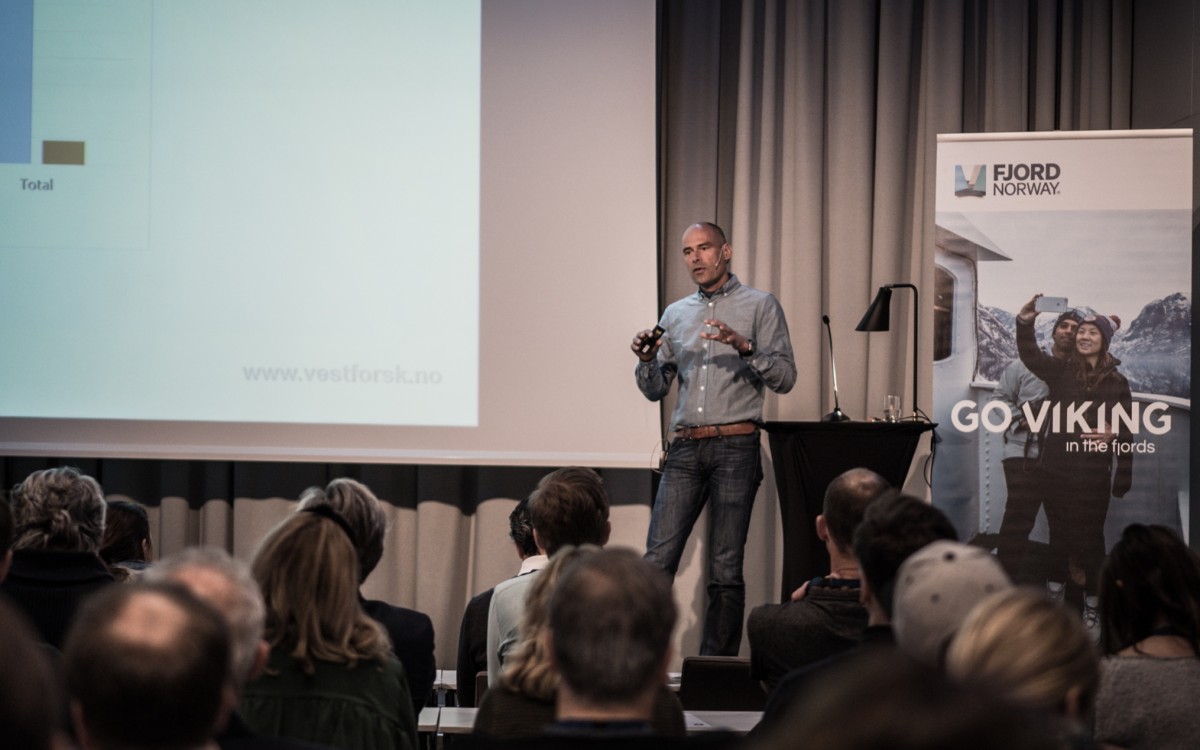Coronavirus paper sets new record

A scientific paper on the coronavirus crisis and tourism written by Stefan Gössling at Western Norway Research Institute, has reached an all-time high of 43,000 downloads in a period of only 6 weeks. The level of interest exceeds anything the Journal of Sustainable Tourism has seen before.
As country after country went into lockdown to halt the spread of the novel coronavirus this spring, Research Coordinator Stefan Gössling at Western Norway Research Institute sat down to reflect on the crisis developing across the globe and the devastating impact it was having on the tourism sector, which constitutes his main research area of research. Together with Daniel Scott at the University of Waterloo in Canada and Michael Hall at the University of Canterbury in New Zealand, Gössling set out to analyse the coronavirus crisis and tourism, discussing the ongoing situation in light of the climate crisis.
Submitted on 6 April, the manuscript for the paper was accepted in as little as 11 days and published on 27 April by the Journal of Sustainable Tourism, bearing the title "Pandemics, tourism and global change: a rapid assessment of COVID-19".
Whilst the three were pleased to be first at publishing a scientific paper on tourism and COVID-19, another record was soon to be set.
All-time high
Several academic articles are all but forgotten after their publication. Most of those who have their papers published, expect nothing more than a hundred or a few hundred downloads. The likes of Gössling tend to view 10.000 downloads a decent figure. Very few ever pass 20.000.
The article by Gössling, Scott, and Hall quickly received attention and, after about 6 weeks, reached 43,000 downloads. This is an all-time high for the Journal of Sustainable Tourism which was established 27 years ago.
For Gössling, the figures constitute a pleasant surprise. He sees the great interest in the article as a result of the fact that this crisis, the pandemic, really stands out:
"This crisis is so much bigger than what we are used to. The current situation in tourism is very severe".
Climate crisis likely to be worse
The article's popularity is probably also related to the fact that Gössling and his colleagues touch on not only one, but two dark subjects: the coronavirus crisis as well as the climate crisis. The authors emphasize the need to understand the coronavirus crisis with surging death rates, face masks, and empty streets as an analogue to the problems that may follow as a result of climate change in the years to come. There is little doubt in their minds that the climate crisis will, in time, cause greater havoc and distress than the current pandemic is doing.
"If we fail to implement a transformation to a low or zero emission society, we are likely to experience far worse situations than what we have seen in 2020", Gössling says.
"Re-build tourism as a low-emission sector"
The article authors hold that the crisis should be seen as an opportunity to re-build tourism, and for this it would be essential to seize subsidies forwarded to aviation.
"Post-corona tourism must be a low-emission sector that Norway and other countries can actually live off after the oil age", says Gössling.
Sustainability in terms of economic resilience is another key aspect:
"It is paramount to build more resilient destinations in the future", says Gössling. This means that tourism must stop chasing after volume growth, which he considers to be a high-risk path. A more favourable way ahead, in his view, would be to attract fewer tourists with a greater spending power and try to build more resilient markets.
